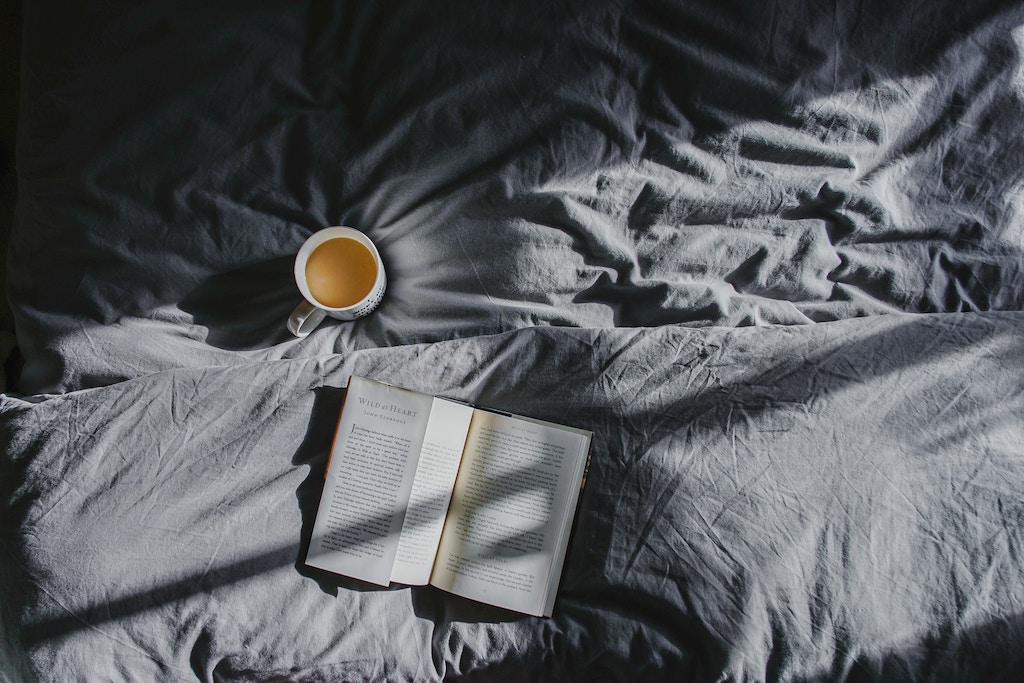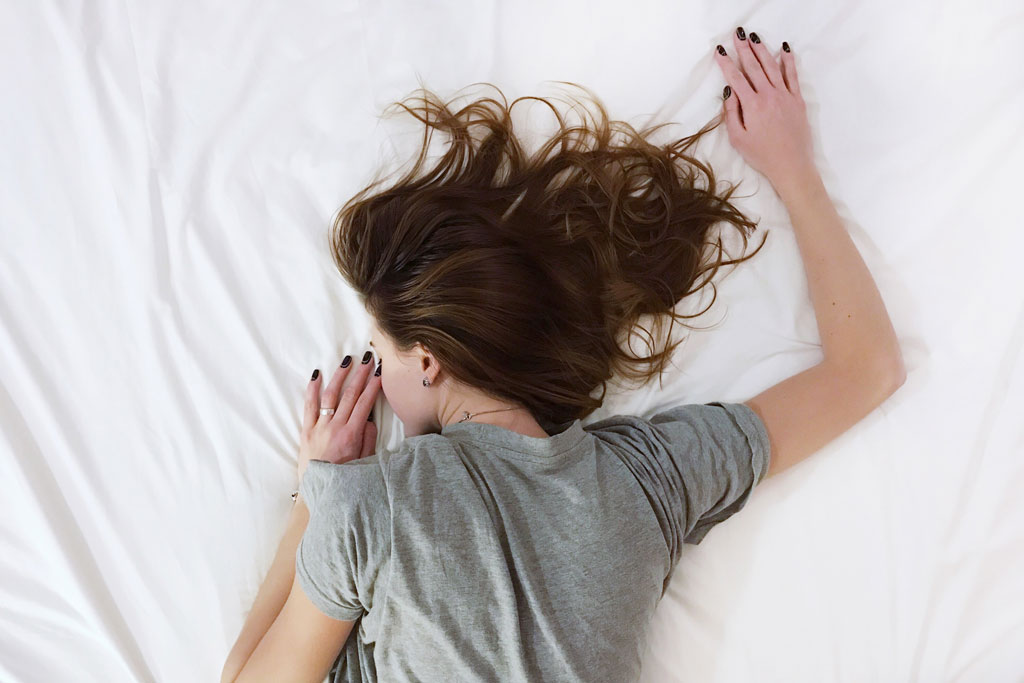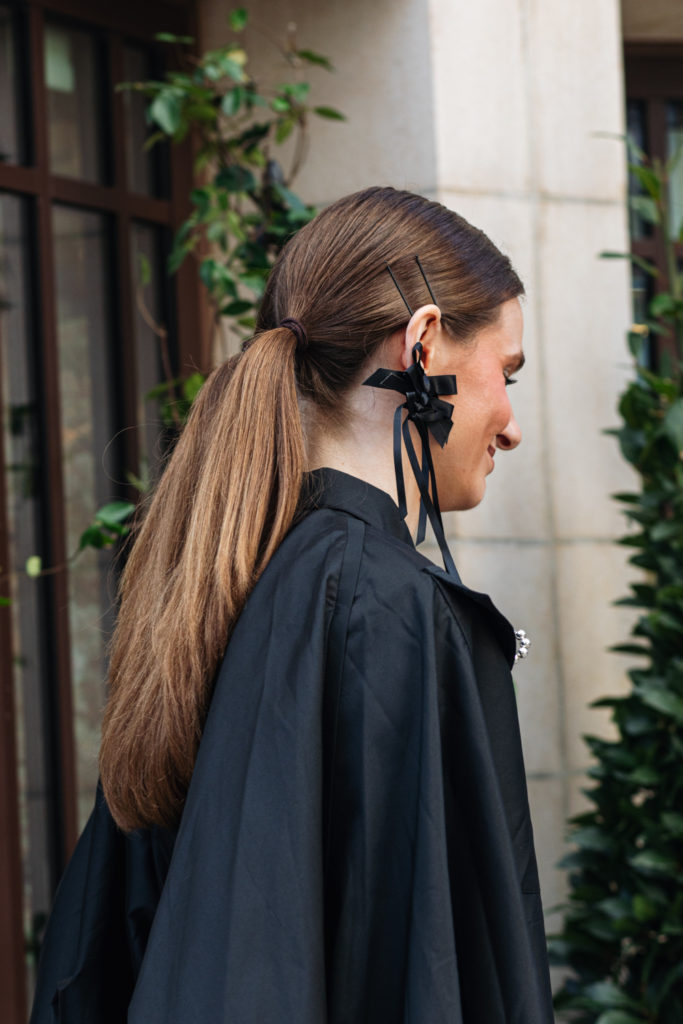World Sleep Day: How To Sleep Better While Working From Home
By
4 years ago
10 of the best tips and tricks for maximising your slumber time

Working from home messing with your sleep schedule? Check out our top tips on how to sleep better…
The idea of WFH might have felt exciting at the beginning, but as most of us have now realised, the novelty wears off pretty quickly. This change of – or lack of – routine can easily mess with our body clock, and affect our sleep, which in turn affects our mental wellbeing. With that in mind, we’ve put together a selection of bed-time remedies to maximise your precious hours of snoozing, no matter what craziness is going on in the world around you. Sweet dreams!
How to Be More Mindful at Home
How To Sleep Better: Top Tips
Spritz your pillow
One look at this product’s reviews is enough to know that this is the holy grail of sleep sprays. Formulated with a soothing blend of lavender, vetivert, wild camomile and a pinch of magic sleeping dust, one spritz of This Works’ deep sleep pillow spray and work stresses will feel worlds away.
Warm milk
A remedy as old as time, this is definitely one your mum has told you about. Warm milk may not be a scientifically proven method but whether its sleep-time benefits are real or of the placebo variety, there is something about heating up a saucer of milk on the hob and cuddling up with a warm mug and a good book that puts us right to sleep.
Block out the light
This is a huge factor and often the last one people think about. Light is essential to your body’s internal sleep clock, with darkness sending essential signals to your body that it’s time to rest. Even the slightest glare from a street light outside can be enough to interrupt those signals and have you tossing and turning for hours. The best (and chicest) way to block out light? A Slip eye-mask designed especially for comfort and anti-ageing – 100 per cent mulberry silk ensures you’ll get your beauty sleep.
Choose your tea wisely
It’s true, there’s nothing more comforting than a cup of tea before bed but even this small routine may be responsible for disturbing your 8-hours. Even a milky Earl Grey packs a caffeine hit. Try swapping out your black tea for a herbal one like Pukka’s night-time tea; a dreamy bed of oat flower, lavender and limeflower – even the ingredient list has us yawning.
Unplug and go analogue
We’re all guilty of scrolling Instagram for a half hour before finally putting it to bed, but studies have shown indulging screen-time too close to bedtime is a major cause of bad sleep. Giving off all colours of light, especially blue, screens make us alert. Plus, it’s hard to snooze when all you can think about is that risky email you just sent in a hurry. An hour before bed, put your phone out of reach and pick up a book instead, you’ll be drifting off before you hit the tenth page.
Adjust your thermostat
If you find yourself waking up in the middle of the night to strip off that extra layer, it’s time to get familiar with your thermostat. Your room should be like a cave; dark, quiet and cool. Your body temperature decreases to initiate sleep, meaning you stand a better chance at a restful night if you’re sleeping in cooler temperatures. Rather than turning up your heating or piling on an extra duvet when you’re chilly, try more topical heating applied to places where you lose the most heat, like fuzzy socks to thaw frozen toes. Ideally your bedroom should be between 18 and 24 degrees.
The C&TH Guide to Upgrading Your Bed
Get mindful
Some people swear by mindfulness apps while others insist it’s just another thing stopping them from dozing off, but their rising popularity suggests more are of the former camp. Named Apple’s App of the Year in 2017, Calm offers a range of audio guides to lead you to the land of nod. Bob Ross, Stephen Fry and Matthew McConaughey are among an array of well-known voices narrating your bed-time stories. Alternatively, the app also boasts hundreds of guided meditation programs to help with anxiety and sleep.
Sleep-train (again)
Just like babies are sleep-trained with strict bedtime routines, it doesn’t hurt to do the same again when you’re all grown up. Implementing a regular pre-sleep schedule can help let your brain know when it’s time for bed, so that by the time your head hits the pillow, your body knows what to do.
If all else fails, try herbal supplements
If you’re at your wits end and worried one more restless night may tip you over the edge, pop into your local Holland & Barrett (or order online, at the moment) and pick up some sleeping aids. If it’s stress that’s stopping the Zs then ask for 5-HTP, a supplement that causes your brain to produce more serotonin to alleviate anxiety. Other supplements with high rates of sleep success include Melatonin (a hormone which helps to control your sleep cycles) and Valerian (a root commonly used to promote tranquility and treat insomnia).
Get to know what works for you
Technology isn’t usually your friend when trying to get some shut eye, but when used correctly it can help alleviate your sleeping woes. Some smart watches and Fitbits have rolled out sleep-tracking programs that use heart-rate variability to chart your night’s sleep. Identifying the times in the night when you’re stirring, in REM, light or deep sleep, can help you recognise the things you’re doing that are harming or helping; you might rethink that cup of tea or decide listening to an audio-book is a better alternative than reading.
READ MORE
20 Places to Sleep Before You Die / The World’s Most Luxurious Beds







